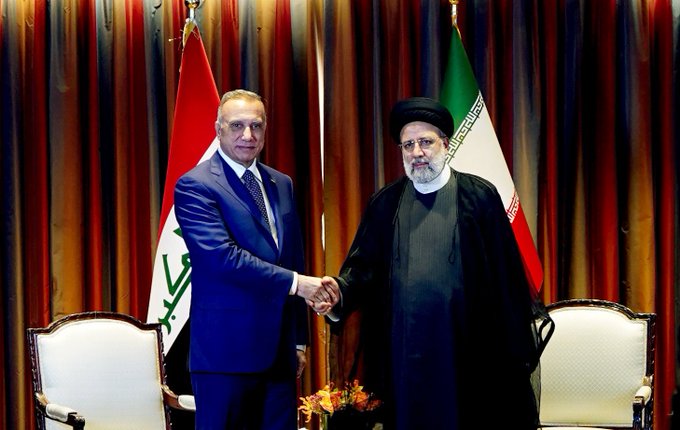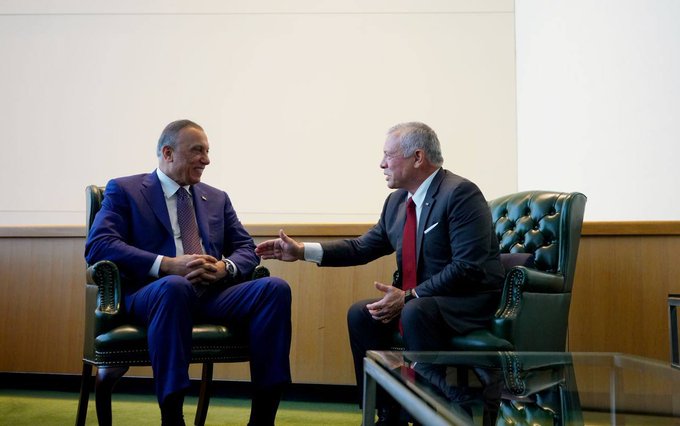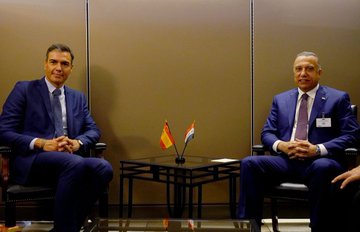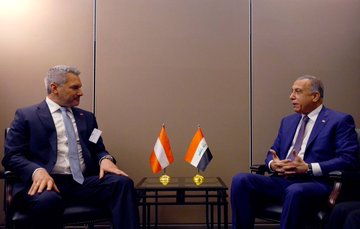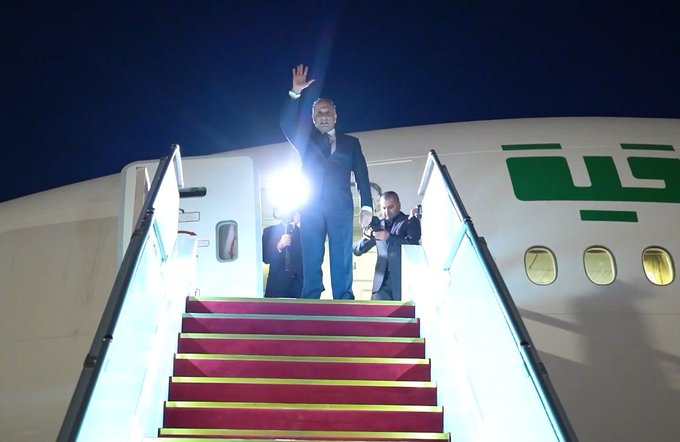RACHEL MARTIN, HOST:
Is the pandemic over? Here's how President Biden answered that question Sunday on CBS' "60 Minutes."
(SOUNDBITE OF TV SHOW, "60 MINUTES")
PRESIDENT JOE BIDEN: The pandemic is over. We still have a problem with COVID. We're still doing a lot of work on it. It's - but the pandemic is over
MARTIN: The president's surprise pronouncement is not going over well with some people, including folks at high risk from COVID and those suffering from long COVID. Some of them staged a protest Monday outside the White House as a result. Here's one demonstrator, Hannah Davis (ph). She told NPR she got COVID in 2020 and that she is experiencing long-term symptoms.
HANNAH DAVIS: I am extremely disappointed in Biden's comment that the pandemic is over. There is absolutely not enough attention on the long-term effects of this disease.
MARTIN: NPR health correspondent Rob Stein is with us this morning. Hi, Rob.
ROB STEIN, BYLINE: Good morning, Rachel.
MARTIN: Clearly, as we heard, some people who are especially vulnerable feel like the pandemic is not yet over. The president is saying it is. You are talking with the public health experts. What are they saying?
STEIN: The short answer from many of the experts I've been talking with is a pretty definitive nope, not even close. While things are certainly way better than they were, say, a year ago, all you need to do is take a look at the number of lives that are still being lost every day to know that COVID is far from being in the rearview mirror. Here's William Hanage at the Harvard T.H. Chan School of Public Health.
WILLIAM HANAGE: Four hundred deaths a day - is that what we're going to be happy with? I think we have to recognize that we still have a big public health problem, regardless of whether or not President Biden says the pandemic is over.
STEIN: If the number of people dying at this rate continues, nearly 150,000 could die from COVID in the next year, and that doesn't even count all those ending up in the hospital and all the lives being upended by the virus - you know, kids missing school, workers missing work, plans being derailed. And the big concern is the president's statement comes at what could be a pivotal moment in the fight against the virus.
MARTIN: A pivotal moment being what?
STEIN: Winter is coming, bringing big fears of yet another winter surge. So the administration is struggling to convince people to once again roll up their sleeves to get new boosters to protect them against omicron. Most people eligible for the first boosters never got them, and declaring the pandemic over is not a great selling point for the new ones. Here's Michael Osterholm from the University of Minnesota.
MICHAEL OSTERHOLM: We need to get as many people in this country as possible vaccinated with the new boosters. And we already knew we had a challenge to accomplish that, but by declaring the pandemic over, there will be many people who say, well, why do I need to get it?
STEIN: Osterholm and others are especially worried about older people, who are the most likely to die from COVID. And that's not all. Critics say declaring the pandemic over could also make it even harder to convince Congress to approve billions of dollars more to make sure the country has plenty of tests, vaccines and treatments to fight omicron and potentially some new variant that could emerge.
The so-called self-made declaration received a mixture of public reactions.
Biden's announcement came a week after the World Health Organization (WHO) said that the end of the COVID-19 global outbreak is already "in sight."
Biden campaigned on being a president who would “follow the science.” But capitalists only trust science when it suits their agenda, and capitalist interests often shape what science gets funded, conducted, or published in the first place.
Take, for instance, the CDC. In February 2022, it shifted its recommendations to focus on new “community levels,” which are determined by the level of Covid-19 hospitalizations in a given county. By this metric, more than half of all U.S. counties are at a “low” community level, and only 13.3 percent are “high.” Prior to February, the CDC’s recommendations for individual and community level precautions were based around community transmission levels, which are based on the total number of cases, not hospitalization. Currently the transmission levels are “high” or “substantial” for more than 93 percent of all counties in the United States — close to the inverse of the new “community level” system.
By simply changing definitions and the schema for coloring in a map, the CDC created a rationale for a lifting of all kinds of public health requirements. A focus on hospitalization rates tracks collective burden on only the hospitals, ignoring the serious impact the virus can have on individuals even when it doesn’t require a hospital visit. It also places an increased burden on people who are extra vulnerable to the virus (either due to immune system issues or other health problems) and their family members, who will need to take extra precautions as a result of the lower level of caution in the community overall. Businesses and public institutions are able to cite these guidelines as justification for lifting protections, which will only result in more people getting infected.
Joe Biden and the bourgeoisie might be ready for the pandemic to be over, but that doesn’t mean Covid-19 has gone away. Capitalist interests, using the fact that people are tired of living in a pandemic as a justification, benefit from going “back to normal,” no matter the cost to the working class and the medically vulnerable. Short term profit interests take priority, regardless of the likely long term consequences of widespread Long Covid. This is one of the recurring contradictions of capitalism, which only a planned, worker-controlled economy that prioritizes the long term wellbeing of everyone can avoid.
Biden is on a streak of talking “straight from the shoulder,” as he once said, on Taiwan, the pandemic, ex-President Donald Trump’s extreme MAGA supporters and whether Vladimir Putin should be leading Russia.
But each time he lays down the law, some White House official, Democratic lawmaker or political ally explains that the President didn’t actually say what everyone heard him say, or that he didn’t actually mean what he appeared to.
 : Kadhimi's office/Twitter
: Kadhimi's office/TwitterIraqi Prime Minister Mustafa Al-Kadhimi arrived in New York, the United States on Tuesday to take part in the 77th United Nations General Assembly, according to a statement from his media office.
In addition to delivering his remarks, Kadhimi is set to meet with a number of heads of state and top government officials as well as representatives of international organizations on the sidelines of the event, a government statement read on Monday.
This is the first time that Kadhimi is representing Iraq in the General Debate. President Barham Salih has previously delivered the country’s statements in the previous UNGA.
His ascension to the top seat was made possible by a carefully-constructed deal struck between Iraq’s various power brokers. For the Sadrists, he was the ideal candidate who could serve their interests under the guise of an ‘independent technocrat.’ This relationship became more explicit when Kadhimi called Sadr the “leader of the resistance” and defended Sadrist politicians against corruption allegations.
Kadhimi’s nomination was agreed upon by Iraq’s anti-US political factions based on several hard conditions: that, as prime minister, he would organize early elections, expel all foreign military forces from Iraq, and expose the factions that had killed protesters during the 2019 civil unrest.
Initially, the PMF factions consisting of Kataeb Hezbollah and other anti-US parties, vehemently opposed Kadhimi’s nomination, claiming he was a “US puppet.” It has been reported that these factions came to terms with his nomination after their allies in Iran advised them that no further delays in the government formation process were feasible.
Immediately after Kadhimi came into office, pro-western, Gulf-sponsored media such as Al-Hadath and Al-Hurra started polishing his image by presenting him as the savior of Iraq.
In one of his first public appearances, Khadimi called his brother to inform him that he would not tolerate the use of their relationship for personal benefit. To his detractors, it was pure theater: to cast himself on a national scale as an anti-nepotism and anti-corruption figure. They pointed out that Kadhimi, a Shia, was equating his actions to that of Ali Ibn Abi Talib – one of Shiism’s, and Iraq’s, most revered religious personalities – declining his brother’s (Aqeel Ibn Abi Talib) request for money. This was one of the many photo ops that would mark Khadimi’s time in office.
What if anything, has Kadhimi achieved?
All strategic decisions made by Abdul-Mahdi that could have positively altered the course of Iraq’s economy and international relations, were overturned by Kadhimi. Any serious efforts by the previous government made in quest of real autonomy were abandoned.
Under the new prime minister, the China deal was set aside and Kadhimi instead proposed to enter a ‘strategic partnership’ with Jordan and Egypt that would essentially amount to handing over Iraq’s oil wealth in exchange for basic commodities, while indirectly normalizing with Israel.
Over the same period, he signed an $8 billion deal in the White House with General Electric, the very same US corporation that had reaped billions of dollars in profits since 2003 by sabotaging the reconstruction of Iraq’s electrical grid.
Under Khadimi’s watch, the construction of the Grand Faw Port was outsourced to a defunct South Korean corporation, while ignoring a lucrative Chinese proposal. This move, for all practical purposes, killed a strategic project that should have been a game changer for the Iraqi economy.
As of today, hardly any progress has been made in the construction of the port that was to become one of the top ten global ports. This is a realm that the Chinese have mastered as part of their ambitious BRI project to connect shipping and transportation routes throughout Asia. But Kadhimi gave it to the Koreans.
During Kadhimi’s tenure, for extended periods, Iraq’s government has neglected to pay salaries to millions of civil servants. This was unprecedented in the country’s post-2003 history, despite the various calamitous crises Iraq has faced in the past 19 years.
In yet another violation of the agreement that brought him into office, Kadhimi did not expel US troops from Iraq, but rather, provided them with an opportunity to re-brand their “boots on the ground.” While a few US soldiers departed, around 4,000 military personnel remain in Iraq in “advisory roles” – that number provided courtesy of the prime minister’s office.
But the move that perhaps struck hardest at Iraqi people’s daily lives was Kadhimi’s support for devaluating the Iraqi dinar. In December 2020, the Iraqi government, following World Bank instructions, devalued the dinar by 23 percent against the US dollar.
For a country that relies heavily on imports, this meant a steep hike in consumer prices. Overnight, millions of Iraqis were plunged into poverty. As of today, the rate of the dinar has not been restored, despite the fact that oil prices have skyrocketed to over $100 per barrel.
It is clear that rather than serving Iraqi interests, Kadhimi is following the US playbook. From his relations with regional states, to his choice of strategic economic partners, to his servitude to western-led austerity proposals, the prime minister has yet to take a step that benefits a sovereign Iraq.
A rift is widening among Iran-backed political groups in Iraq over how to deal with the Shiite cleric Moqtada Al Sadr's demands before a crucial meeting to solve months of political deadlock over forming a new government.
Mr Al Sadr withdrew his movement from national politics after an increasingly bitter row with the Co-ordination Framework, a coalition of mainly Iran-backed parties which suffered major losses in elections a year ago.
He now wants parliament to be dissolved and has suggested keeping caretaker Prime Minster Mustafa Al Kadhimi and President Barham Salih in office to oversee a second round of early elections.
QUESTION: Yeah, on Iraq, please. As you well know, the power struggle in Iraq is worsening. And given the fact that U.S. has – the stake is high for the United State, are you taking side? Are you in touch with some party in Iraq? Are you doing something in this regard?
MR PRICE: We are not taking sides. We are prepared to work with the government that puts Iraqi sovereignty and the best interests of the Iraqi people at the heart of its agenda. We hope to see a government form that does just that and a government that is able to deliver for the best interests of the Iraqi people.
